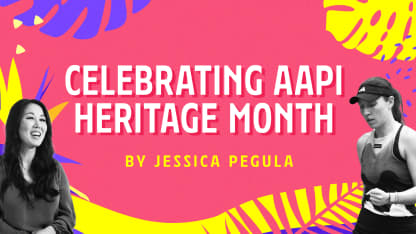My mom was born in Seoul. She was left by her birth parents outside of a police station, spent time in an orphanage, and was adopted by my grandparents and brought to Fairport, New York when she was five years old. She had never gone back - I don't think she ever would have if not for tennis.

